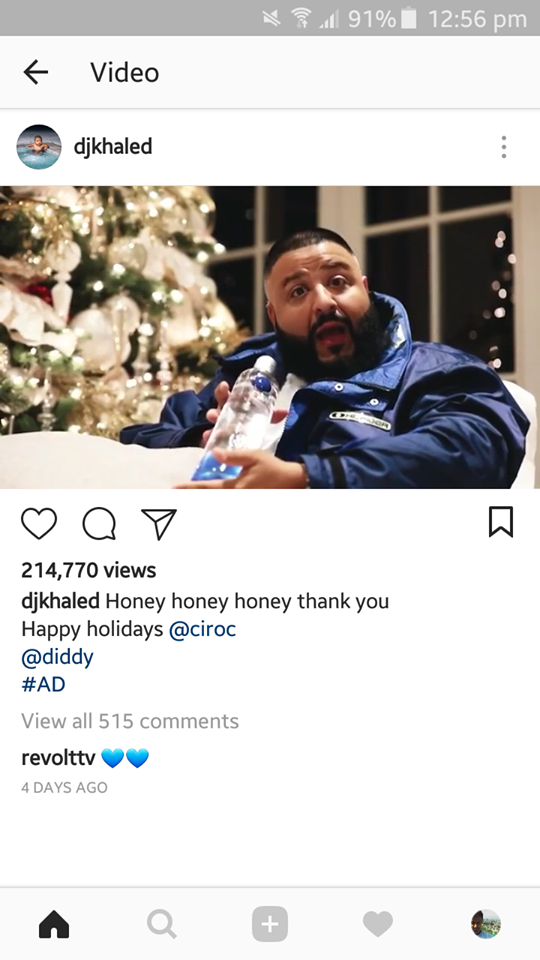Over the last few years, social media influencers have become a HUGE deal.
If you use social media personally, chances are you follow social media influencers and consume their content on a daily basis.
Knowing the power that social media influencers hold, brands are creating partnerships with influencers in their niche to reach new audiences and sell their products.
In September 2017, the Federal Trade Commission (FTC) updated their social media marketing guidelines on how brands and influencers should work together and what they need to disclose.
In this article I’ll discuss how you can connect with social media influencers and use them to promote your brand without breaking any of the rules.
What is a social media influencer?
A social media influencer is anyone who has a social media account and can persuade their fans to do something.
A social media influencer can have 1,000 followers or 10 million followers.
For example, The Rock (Dwayne Jonson) is a celebrity social influencer. He could say positive things about a book he read and hundreds of thousands of people would buy that book from a single Facebook or Instagram post.
He could also say positive things about your product that will lead to thousands of sales if you decide to work with him to promote your brand. This is what the FTC wants to make clear: whenever a social media influencer is paid to promote a brand, they should let their audience know as, currently, consumers are being misled when influencers promote products they have been paid to promote.
How to keep in line with regulations when working with social media influencers
If you pay a social media influencer to talk about your product or brand on social media, they must disclose it to their fans.
For example, if you give a social media influencer a free product to try and they post their review on social media, they must disclose this with their fans.
If you pay them to directly talk about a product, they must disclose this.
It’s quite simple: if you have agreed some sort of partnership or deal in exchange for product or brand exposure to their audience, your relationship must be disclosed.
If The Rock just happens to buy your product and tell his fans it’s the most amazing product ever with no input from you, no disclosure is needed because he was not influenced by you.
To keep in line with social media influencer regulations, disclosure is only required when you have a business relationship with the influencer.
How do you disclose sponsored content?
This was taken directly from the FTC website:
Is there special wording I have to use to make the disclosure?
No. The point is to give readers the essential information. A simple disclosure like “Company X gave me this product to try . . . .” will usually be effective.
If you’re asking someone to review one of your products on Instagram or Facebook, then in the text section they must let their followers know that you either paid them to talk about your product or you gave it to them for free.
Some influencers simply use the hashtag #ad or #sponsored to make their followers aware, but it’s not always seen by everyone.

Facebook and Instagram have a Branded Content feature which allows the social media influencer to directly tag the sponsor into their update. This makes it much clearer for fans to understand that it is a paid post.

For a social media influencer to use Branded Content and tag your brand, they need to be verified on Facebook or Instagram. Micro influencers (social media influencers with smaller followings) will most likely not be verified and will be required to put the disclosure in the text section of the post.
What if I don’t want the social media influencer to disclose anything?
If the social media influencer promotes your product or service and does not disclose that the content they are posting is sponsored, you could both be in trouble later.
The reason to use a social media influencer is because they have the power to get your business more customers. If you both lie and it’s found later that you were paying them to promote your brand, it can end up backfiring – social media users don’t let things go easily.
You also don’t want to be known as a dishonest business. If you’re upfront and honest about all your advertising, you will have less problems later down the line and be more successful in the long term.
If you pick the right influencers and the content they post is personalized to their fans, they won’t be upset or angry if you’re upfront with them.
The paid partnership post between BSN Supplements and Connor McGregor (posted above) gained over half a million likes and over 2,600 comments.
From looking at his other Instagram posts, the average amount of likes is around 700-900k per post.
It’s clear that the ‘paid partnership’ tag in the post did reduce the amount of people who engaged, but reaching over half a million people is still pretty impressive.
Just be honest and everything will be okay
If you are 100% upfront and don’t mislead the influencer’s fans, then you won’t be breaking any rules.
A common question I get asked is, “Should I pay for my own ads on Facebook or use a social media influencer?”
To have the best chance of crushing it, you have to use both. Having to fully disclose partnerships may seem like a roadblock in your marketing strategy, but that’s how you win at social media in 2018 – it’s always evolving and so must your strategy.
How will you use social media influencers in 2018?